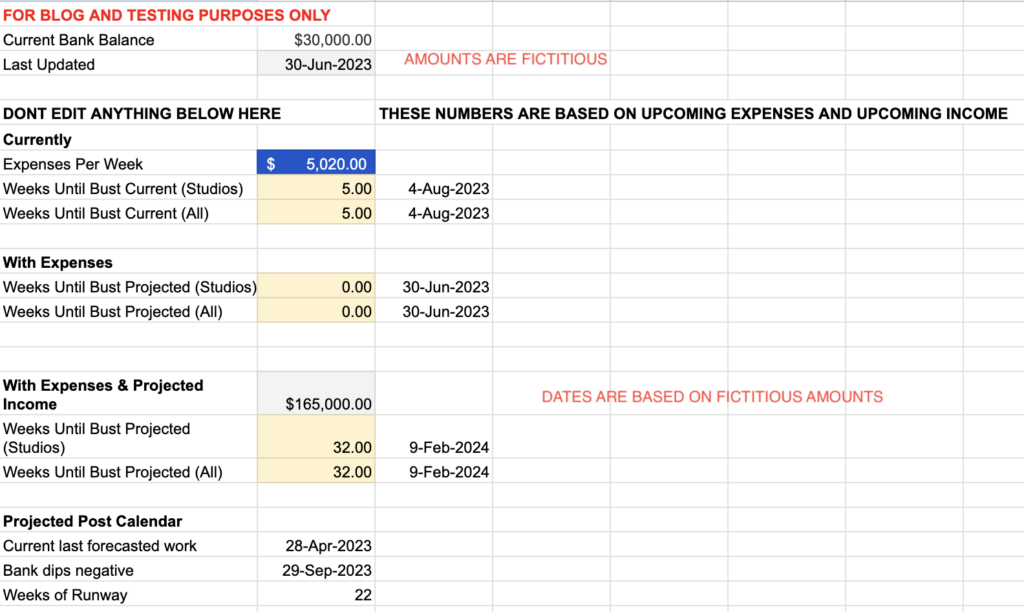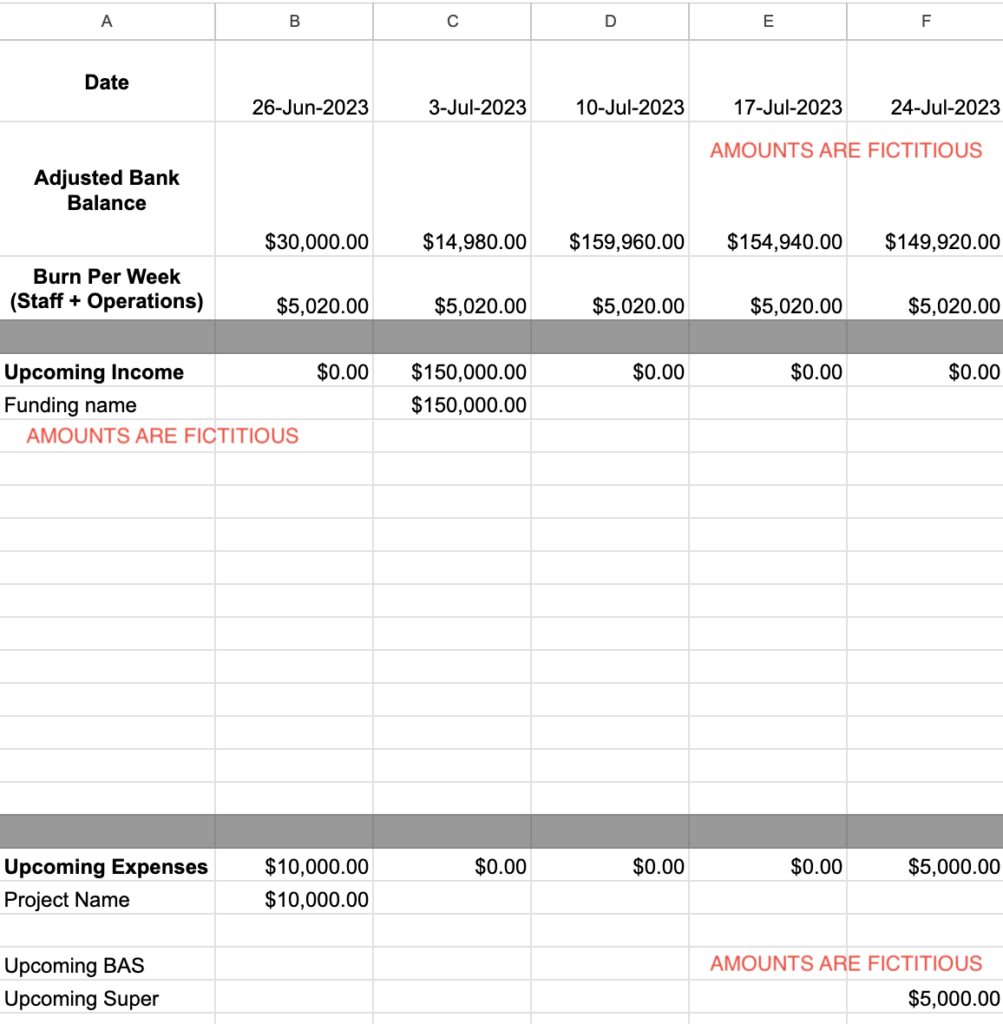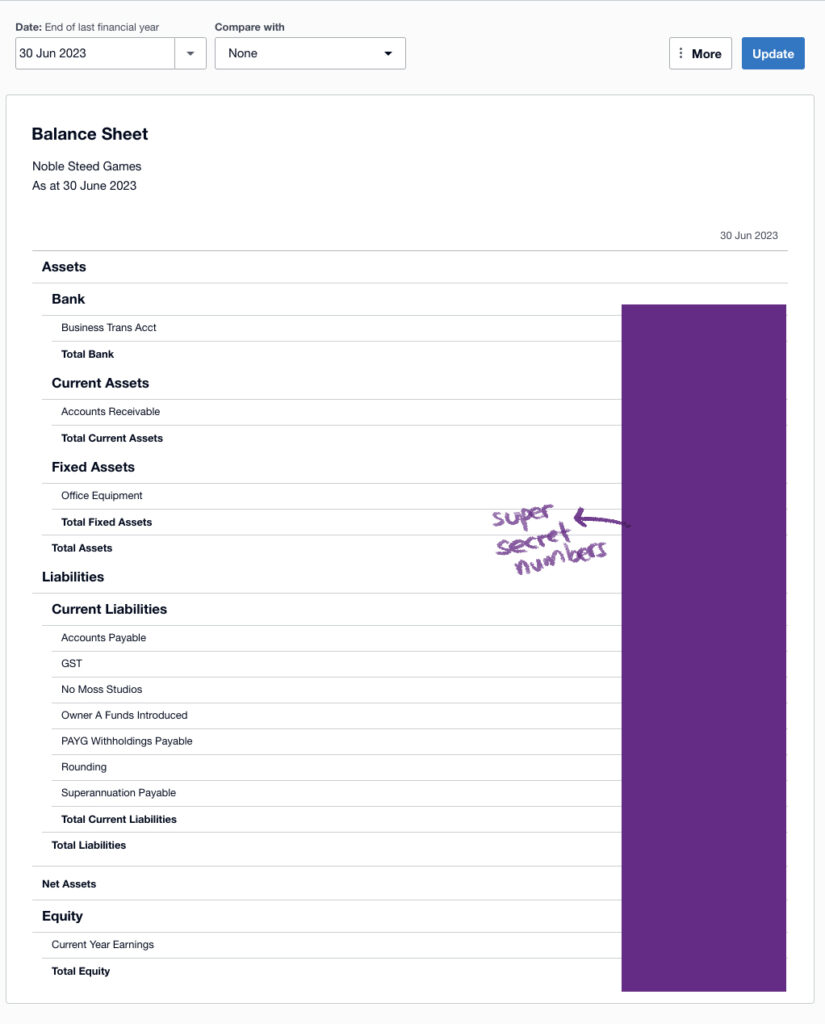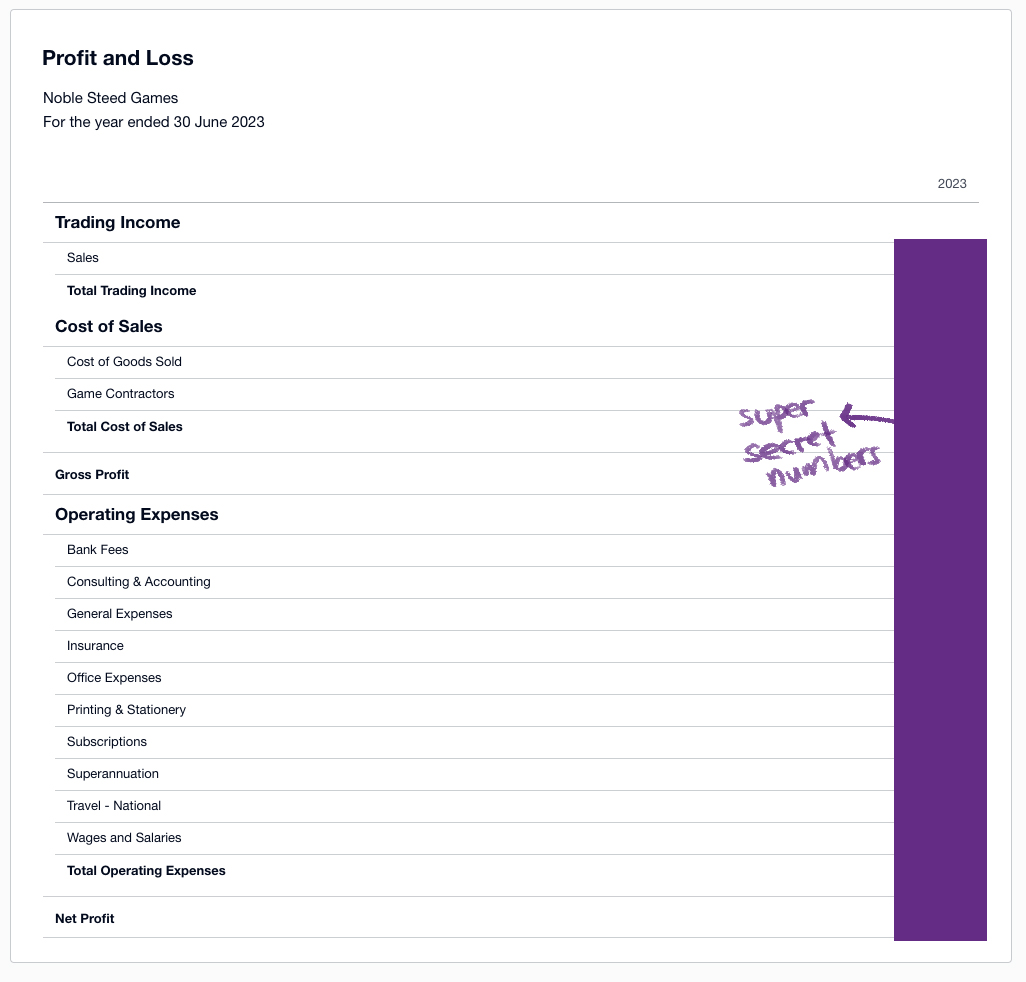Part and parcel of running your game studio as a business is managing your finances. If you were previously a hobbyist game dev, this aspect of set-up might be a little daunting. Keep in mind that it is yet another cornerstone of your learning! Just as you learnt how to greybox levels, you can figure out how to use spreadsheets and other financial tools to run your studio.
In part one of this series, we spoke about the importance of getting an accountant to help you navigate the various financial aspects of running your studio. This advice still rings true, though understanding a few key concepts will go a long way. In addition, we have some snippets of our working spreadsheets, which will hopefully illuminate the administrative sides of running a studio.
Index of Contents
PART 1: Business planning and registration
PART 2: Preparing your finances
Part 3: Security, Marketing and Administrative plans
Business bank accounts
Every business (partnership, company or trust) needs a separate business account for tax purposes. This account makes it easier to track and manage your game studio’s expenses and income, which will be vital information for any tax and reporting obligations (Eg. Business Activity Statement/BAS).
Setting up a business bank account is straightforward after already registering your business. Your next steps are to:
1. Research and select a bank to open a business account with
If you opt to open a business account with the bank you already have a personal account with, make sure you tell the bank to open a separate business bank account since they may connect the business one to your personal one – and might get confusing on your part.
2. Prepare the documents/details they require
3. Apply for your business bank account:
You will require a business transaction account. This is for all operational transactions. (Eg. Purchasing assets from the Unity asset store, software subscriptions, wages etc.)
You may also apply for a business savings account, where you set aside surplus cash to earn interest and save for other expenses (Setting aside funds for income tax, GST for BAS time, future game development equipment/tech etc.)
You may also open a business fixed-term deposit. This is where you invest your business’ surplus funds for a fixed period of time for a fixed interest rate.
Every bank has slightly different requirements and benefits, so it might be worthwhile drafting up a table to compare them. Things to consider might be:
- Interest rates: Make your cash work harder for you!
- Fees: Most banks in Australia have $0 fees for digital transactions, but various fees for staff-assisted transactions, cheques etc.
- Benefits: Some banks might have introductory offers or other benefits to entice new businesses to set up an account with them.
- Features and apps: The Big 4 Australian banks are all relatively on par with each other in terms of features they provide and their mobile apps (Competitive business credit cards, financing options, mobile app user-friendliness etc). Make sure the bank you use is licensed and covered by the Australian Financial Claims Scheme.

Key terminology and concepts
In this section, we will cover a few key terms and concepts. These are all aspects of running your studio that you will need to set up to manage it effectively. In tangible terms, that means tracking financial data in the form of spreadsheets.
Cash flows
Cash flow is the amount of money that goes in and out of your business.
In the context of a game studio, cash flowing in is typically grants, founder investments or publisher advances, at least in the midst of production (See funding sources below). Once you’ve published your game/have it on sale, an additional cash in-flow would be any revenue generated from it.
Cash flowing out for a game studio would be wages, bills and other expenses. Check out Part 1’s table of possible studio expenses.
Cash flow statements are how you track this in and outflow of cash for your studio. There are myriad templates for monitoring and managing your studio’s cash flows out there, but here is one from the Australian Business Government site to start with. If you are working with an accountant, they can assist with ensuring your cash flow statements are in order. Accounting software (we use Xero) can also help by making sure all cash flows are accounted for within their platform.

Burn rates
Burn rates are the speed at which a company is consuming its cash reserves before it starts generating its own income. For a game studio that has been financed by a grant, founder investment, or mix of them, this would be measuring how quickly your studio is spending this cash.
This is an important aspect of your studio to track, as it is a measuring stick for how long your runway is- the amount of time your studio has before it runs out of money. Check out this article on types of burn rates.
For our studio, we use a spreadsheet like the following:


Budgets
Budgets are estimates of income and expenditure for a set period of time. Besides the above financial tools which incorporate budgeting, you will always need to figure out budgets for upcoming expenses during your operations.
One sample scenario is going to game development events to promote your game. There would be boothing costs, staffing costs, equipment hiring costs and much more to consider. See Meredith’s intensely insightful GDC slides about budgeting for the true cost of attending these events here.
How do you budget all of this though? It helps to be an information gatherer, compiling all possible expenses into lists, and then placing buffers for any uncertainty. After having all the details, you can figure out if it is something that your studio can afford. (Meredith’s slides very importantly go into estimating value in return.)

Balance Sheets
We use the balance sheet report generated from Xero. It’s a great report to see how financially healthy your company is. It will show you your current bank balance, account receivables (amounts owed to you), your assets that would depreciate, liabilities which are ongoing accounts that are good to keep an eye on, as well as your equity profit which is your profit and loss report. Once you are operating for more than 12 months, it would be good to compare your balance sheets yearly to see how far you’ve come or, on the flip side, if you need to change your strategy.


Funding sources for game studios
This helpful resource from IGEA introduces the various types of funding a game studio can consider, as well as the considerations one should make. To elaborate further, here are the different types of potential funding sources for game studios:
| Grants | Every type of grant has its own terms and conditions. In particular, it would be important to note you and your game’s eligibility, recoup expectations and any other grantor’s terms of trade. We shared this in our previous blog, but IGEA has made a masterlist of game development incentives available in Australia. |
| Founder investments | This means any out-of-pocket investment from you, the founder. |
| Publisher advances | This is a sum of money negotiated with a publisher and paid to you to develop the game. Typically, development funding is split up into advances for milestones during development. The publisher then recoups this from some agreed payment structure. Eg. a certain proportion of game sales, merchandising activities or other revenue streams. Essentially, “trading risk for future loss” as mentioned within the spreadsheet. Getting a publishing deal is highly competitive as well as time-consuming. Check out this resource from Akupara Games on tips to approach a publisher and this sample of an actual pitch deck. (Rejected, but still insightful) |
| Crowdfunding | This involves using small amounts of capital from a large number of individuals to finance your game’s development. Popular platforms are: Kickstarter, Fig, Indiegogo. Check out this guide to launching a Kickstarter for your indie game. |
| Equity crowdfunding | Equity crowdfunding is a little different because investors have a proportionate slice of equity (the amount of money that would be returned to an investor if the company was liquidated/wound up.) in the business venture. Popular platforms are: Fig. |
| Platform exclusivity advance | When you make an agreement for your games to be developed for and released only on specific platforms in exchange for development funding. (Usually for an agreed amount of time) The trade-off is lost potential revenue sources from having your games available on other platforms. |
| Platform sales advance | When you make an agreement to sell your game to the platform in exchange for development funding. The trade-off is the loss of future sales. |
| Subscription service buyout | Examples of subscription services are XBOX Games Pass, Apple Arcade and Netflix games. This arrangement involves these services acquiring your game, with a controlling interest in your company. Examples include Microsoft’s Activision-Blizzard acquisition and Netflix’s acquisition of SpryFox. |
| Angel investors | An angel investor (also known as a private investor, seed investor or angel funder) is a high-net-worth individual who provides financial backing for small startups or entrepreneurs, typically in exchange for ownership equity in the company. |
| Venture capitalists | A type of financing where investors buy a minority equity stake in your company. They provide advice and support but are not involved with operations. The difference between VCs and Angel investors is that VCs are companies, not wealthy individuals. Venture capital firms comprise professional investors, with capital coming from individuals, corporations, pension funds and foundations. Check out this GCAP Video to learn more. |

Phew. That was quite a lot to get through! We hope this information isn’t too overwhelming, but that it instead makes things more transparent and clear. It will be helpful to wield this information when you work with an accountant, ensuring both of you are on the same page from the get-go.
Check out Part 3 which will cover day-to-day operations, security and marketing!
We hope you enjoyed reading this! Have a question or want to chat more about game development? Reach out to us!
Other places you can find us:
- Our other game development resources
- Join our Discord server


